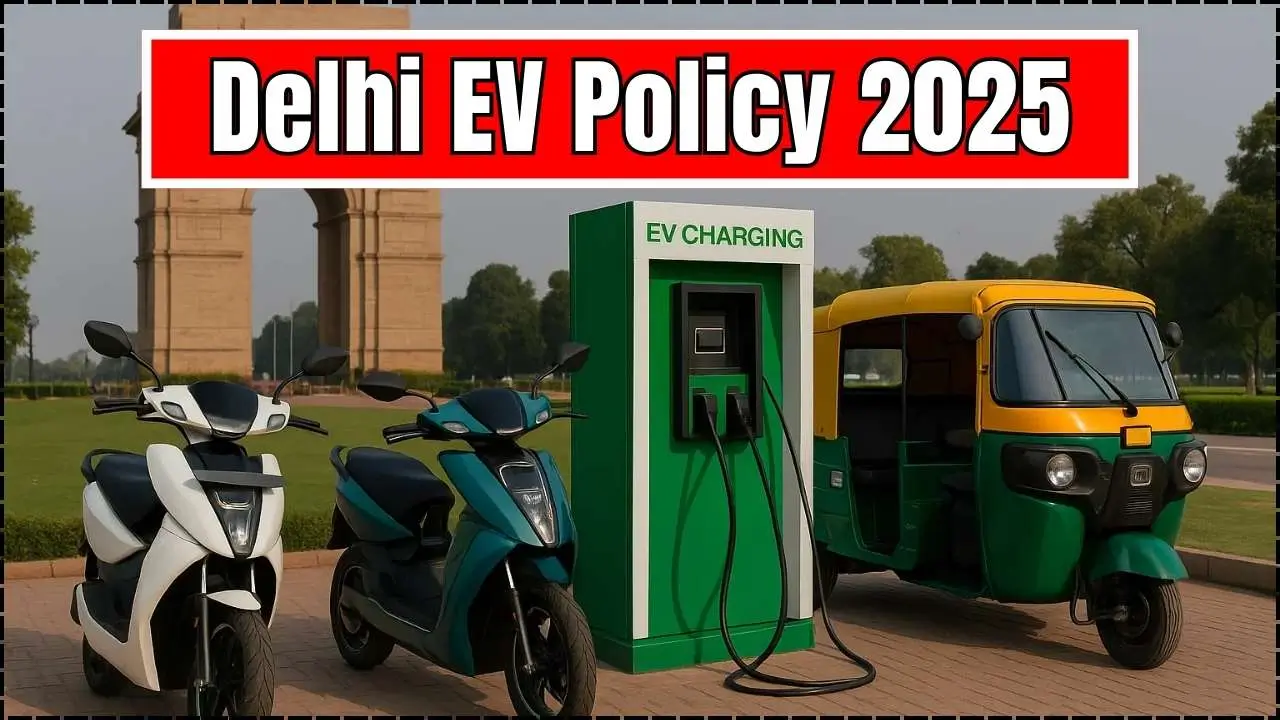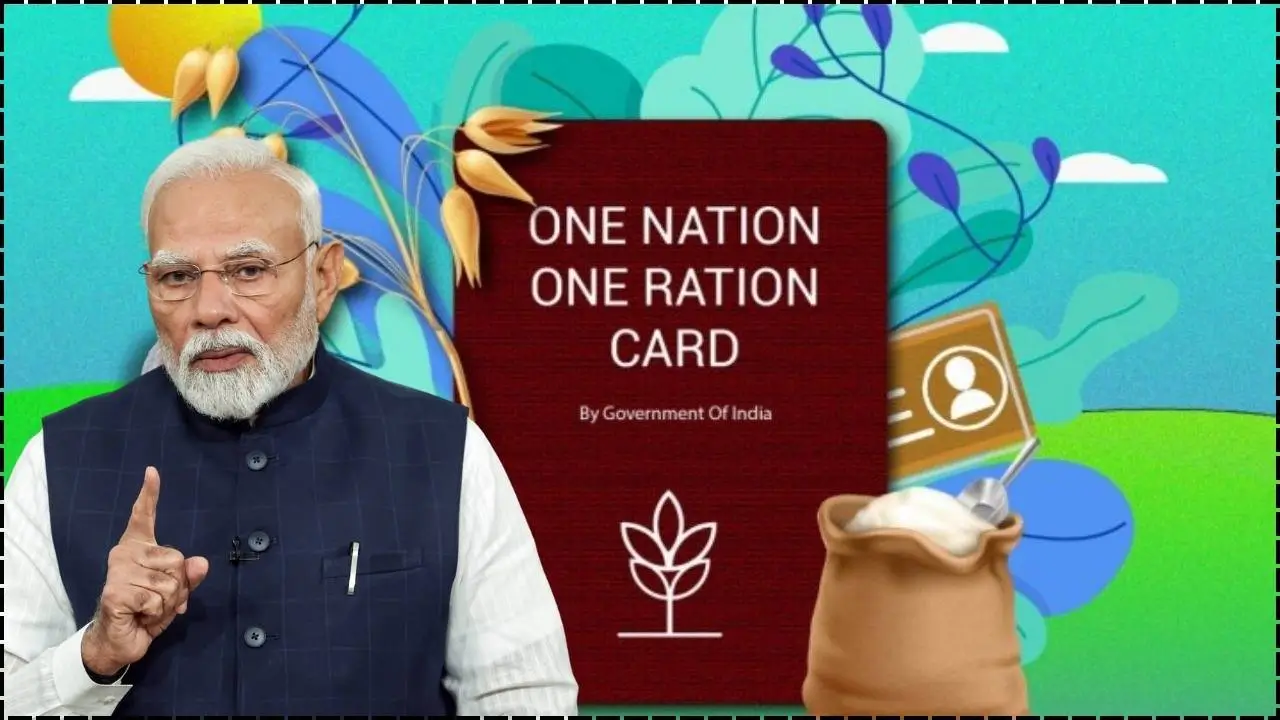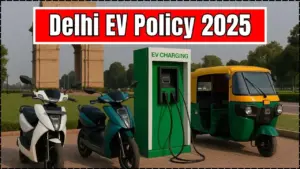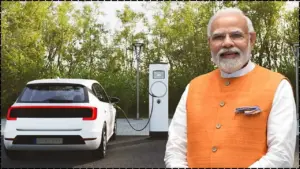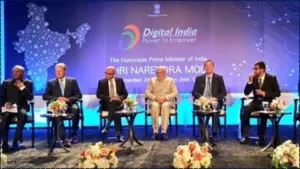The 2025 Electric Vehicle Policy is a key step toward making electric cars a mainstream option for Indian families. By offering big subsidies, tax benefits, and charging infrastructure support, the government is making electric cars more accessible, affordable, and convenient. With increased environmental awareness and the long-term financial savings that EVs provide, the policy is expected to significantly accelerate the adoption of electric vehicles across the country.
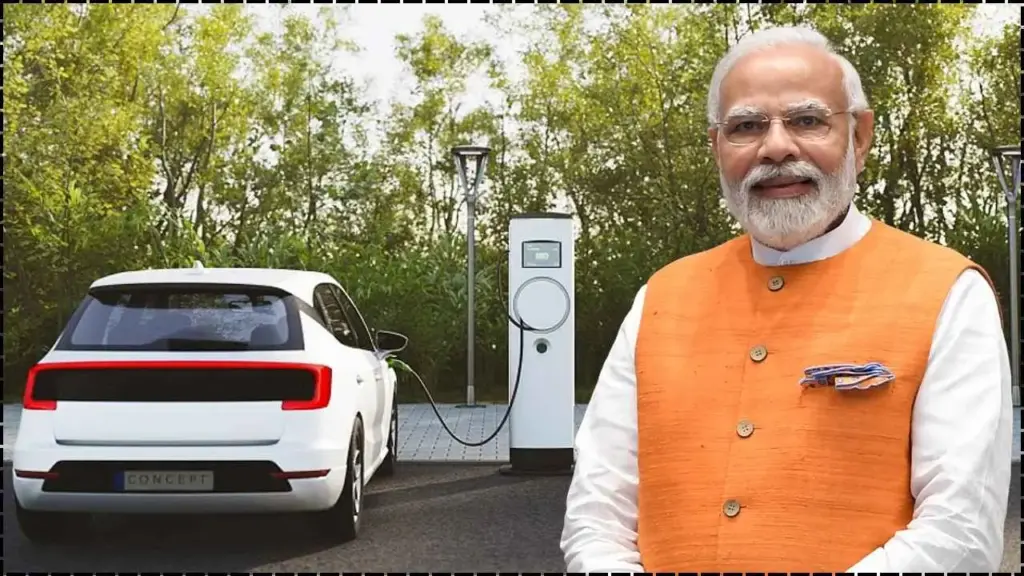
In an effort to accelerate the adoption of electric vehicles (EVs) across India, the 2025 EV Policy introduces a host of subsidies, tax benefits, and perks for buyers. This comprehensive policy is set to make electric cars more affordable, pushing India closer to its sustainability and environmental goals. By encouraging widespread EV adoption, the government aims to reduce dependence on fossil fuels, lower carbon emissions, and promote a green future for the country.
Key Features of the 2025 EV Policy
The 2025 EV Policy focuses on several major initiatives designed to benefit both manufacturers and consumers. The highlights of the policy include:
1. Enhanced Purchase Subsidies
The new EV policy offers direct subsidies to buyers of electric vehicles, with the amount depending on the vehicle’s specifications. Subsidies range from ₹1.5 lakh to ₹2.5 lakh for eligible models. For example, vehicles priced under ₹15 lakh will receive up to ₹1.5 lakh in subsidies, while higher-end models may qualify for the full ₹2.5 lakh support.
This initiative is expected to significantly reduce the upfront cost of electric cars, making them more accessible to the middle-class segment. It is particularly beneficial for families who have been hesitant about switching from traditional petrol or diesel vehicles due to the higher purchase cost of electric cars.
2. Tax Benefits and Exemptions
Under the new policy, electric vehicles will also enjoy exemptions from road taxes and registration fees. This perk further lowers the overall cost of owning an EV. In states like Delhi and Maharashtra, buyers can save up to ₹10,000 annually on road taxes alone.
In addition, some states are offering income tax exemptions for electric vehicle buyers, which would provide further relief to buyers, particularly in the form of annual savings. This makes the policy highly appealing for buyers looking to reduce their overall cost of vehicle ownership.
3. Scrappage Incentives for Old Vehicles
To encourage the transition from internal combustion engine (ICE) vehicles to EVs, the government has also introduced scrappage incentives. Under this provision, owners of older petrol or diesel vehicles can trade them in for substantial discounts on new electric vehicles. States like Maharashtra and Uttar Pradesh offer scrappage benefits up to ₹25,000, which can be used against the cost of purchasing a new EV.
This initiative not only aids in reducing air pollution but also encourages car owners to replace old, inefficient vehicles with cleaner alternatives, accelerating India’s push toward cleaner transportation.
4. Charging Infrastructure Expansion
A major concern for potential electric car buyers is the availability of charging infrastructure. The new policy addresses this by ensuring that charging stations will be set up across urban and rural areas. The government is incentivizing private players to install fast-charging stations at key locations. Moreover, manufacturers like Tata Motors and Mahindra Electric are working to expand their charging networks to ensure that EV owners have easy access to charging points wherever they are.
To further ease adoption, the government is also offering subsidies for the installation of home-based charging units, making it convenient for car owners to charge their vehicles without relying on public infrastructure.
How the 2025 EV Policy Benefits Car Buyers
The EV Policy 2025 is designed to save money for car buyers in multiple ways:
1. Lower Initial Purchase Cost
The subsidies offered under the policy make electric vehicles significantly more affordable. A direct discount of ₹2 lakh on a ₹12 lakh car brings the effective price down to ₹10 lakh, making EVs much more competitive with traditional vehicles.
2. Lower Operating Costs
Once purchased, electric vehicles have lower operating costs compared to their fossil-fuel counterparts. Charging an EV is generally cheaper than refueling a petrol or diesel vehicle. Additionally, EVs have fewer moving parts, leading to reduced maintenance costs. This means lower repair and servicing bills for families in the long term.
3. Environmental Benefits
Adopting electric vehicles not only saves money but also helps the environment. By reducing the carbon footprint, buyers contribute to reducing air pollution and decreasing the country’s dependence on imported oil. The government’s commitment to making EVs affordable further strengthens its climate action agenda.
4. Government and Industry Support
Along with financial perks, the growing support for electric vehicles from the Indian government and various automobile manufacturers strengthens buyer confidence. The robust support structure for EVs includes warranties, easier financing options, and government rebates, making it easier for families to transition to EV ownership.
Related Links
Apply for Telangana e-District Services Online: Step-by-Step Process Explained
Register for PM Kisan Samman Nidhi 2025 in Bihar: Check How to Apply
Apply for Karnataka Labour Welfare Board Benefits Online: Step-by-Step Process
Broader Impact on India’s EV Market
The 2025 EV Policy is expected to have far-reaching effects on the electric vehicle market in India:
1. Boost to Local Manufacturing
The policy aims to stimulate local manufacturing of electric vehicles and their components, thereby reducing the reliance on imports and creating job opportunities within the country. India’s EV manufacturing sector is expected to grow rapidly, attracting both domestic and international investments.
2. Boost to Job Creation
As the EV market grows, so will the demand for skilled labor in areas like manufacturing, research and development, charging infrastructure setup, and battery recycling. The policy supports these areas by encouraging investment in green technologies and infrastructure.
3. Reduction in Carbon Emissions
India is committed to reducing its carbon emissions by promoting sustainable energy sources. By facilitating the widespread adoption of electric vehicles, the government can significantly reduce emissions from the transport sector, which is one of the largest contributors to air pollution in the country.
FAQ About EV Policy 2025
Q: How much subsidy will I get under the 2025 EV Policy?
A: Subsidies range from ₹1.5 lakh to ₹2.5 lakh for eligible electric vehicle models, depending on the vehicle’s price and specifications.
Q: Will I have to pay road tax for my electric vehicle?
A: No, many states offer exemptions from road tax and registration fees for electric vehicle buyers.
Q: Can I replace my old vehicle with an electric vehicle?
A: Yes, the scrappage incentives offer discounts for replacing old petrol or diesel vehicles with electric ones.
Q: Is there any support for setting up charging stations?
A: Yes, the government is incentivizing the installation of home-based charging units and expanding public charging infrastructure across India.

